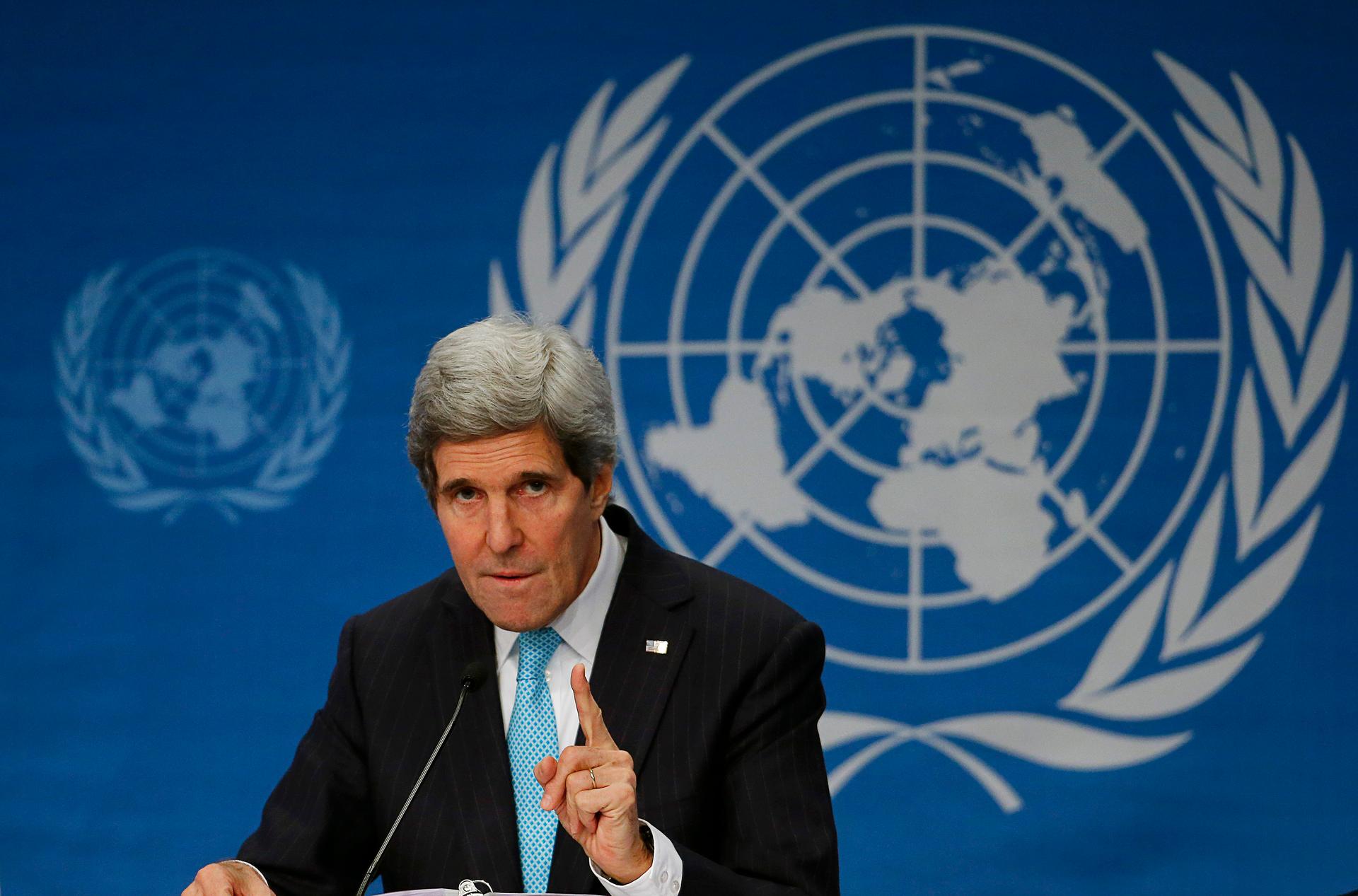Are there lessons from Bosnia for the Syria peace talks?
US Secretary of State John Kerry addresses a news conference after the Geneva-2 peace talks in Montreux January 22, 2014.
The first day of the much-awaited international Syria peace conference was filled with speeches by various heads of state, and one major issue dividing delegates was: should Bashar al-Assad stay in power?
"There is no way, no way possible in the imagination, that the man who has led the brutal response to his own people could regain the legitimacy to govern. One man, and those who have supported him, can no longer hold an entire nation and the region hostage," said US Secretary of State John Kerry.
On the other hand, Walid Muallem, the Syria's foreign minister said if the international community is worried about the humanitarian situation in Syria, they should "let [Syria] be."
"Stop supporting the weapons and terrorists, stop the sanctions and the siege and go back to the policy of reason," Muallem said.
Ivo Daalder, the US permanent representative to the North Atlantic Treaty Organization (NATO) until this past July, says in some situations to end a civil war, you have to negotiate with an oppressive regime.
"It's a very hard question," Daalder says. "On the one hand, can you possibly deal with someone who has been responsible for the kinds of atrocities that have taken place? And on the other side, unless you are able to defeat him militarily you're only going to be able to get to a final solution by having a political deal."
He recalls a similar situation arising during the rule of Slobodan Milošević and the war in the 1990s.
"In the Balkans much of the debate was about whether the US should intervene, and if so, should it favor one side over the other," Daalder says. "It was after the Croatian military brought about the balance of power that a deal became possible."
That deal, Daalder says, was struck by negotiating with Milosevic himself.
The former ambassador to NATO says usually a civil war ends in one of two ways: Either the parties are too exhausted from fighting and find a cease-fire, or one side defeats the other side. Right now, neither of these are happening in Syria.
Ethical considerations may now stand in the way of a deal with Syria, Daalder says, but "it is very likely that if we are going to solve this conflict politically that someone will have to deal with Assad directly."
